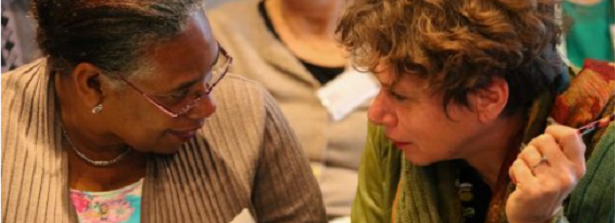
Wageningen UR Centre for Development Innovation organizes the conference “Partnering for Success – How M&E can strengthen partnerships for sustainable development” in March 2016. Partnerships for development are crucial. Global efforts have focused on the Sustainable Development Goals, as the issues being tackled are increasingly recognised as complex. Collective action is unavoidable as the post-2015 UN development agenda stresses. “Today’s complex and interconnected world clearly needs collaboration and partnerships between interest groups spanning the boundaries of business, government, civil society and science”.
Investments in diverse partnerships and partnership platforms are growing apace. Donors have committed over $5.9bn in multi-annual aid to further the aims of the New Alliance for Food Security and Nutrition, and $1.5bn in grants and loans to support African growth corridor programmes. Multi-stakeholder partnerships (MSPs) are ‘a form of governance, a way in which groups of people can make decisions and take action for the collective good, be it at local, national or collective scale. They range from short consultation processes to multi-year evolving engagements, with more or less structure or formal organisational arrangements’.
However, on what basis is investment in MSPs founded? An Oxfam study cautions: ‘Mega agricultural PPPs are by and large unproven and risky, and appear likely to skew the benefits of investments towards the privileged and the more powerful, while the risks fall to the poorest and most vulnerable’. The enthusiasm for partnerships is not yet matched with solid understanding of when partnerships are needed and what their specific role is in sustainable development efforts. Nor is it clear how to monitor the functioning of partnerships, or evaluate their promised impact in creating value at multiple levels. Partnerships are not always effective, since conflicts arise, powers are abused, downward accountability hardly takes place, and learning and communication are often inadequate.
Monitoring and evaluation (M&E) can help strengthen multi-stakeholder partnerships (MSPs). M&E can support the learning and decision making processes, holding partners accountable or in assessing the functioning of partnerships and how they can reach more sustainable results. But what makes for effective M&E? How can evaluation professionals measure partnership processes and results, in order to improve them? This conference will synthesise insights from practice and theory as a contribution to the partnerships critical for sustainable development.
What this conference is about
Key questions to be explored include:
- What kinds of partnerships exist that could benefit from the support of M&E processes?
- How can M&E strengthen these partnerships for sustainable development?
- What is specific about the M&E within different kinds of partnerships, as compared to other implementation forms?
The conference will connect the realities of those working in practice with ideas from people who are thought leaders on the partnership topic. Workshops, clinics and presentations will ensure a lively and thoughtful opportunity to question one’s own practice and find inspiration for new ideas.
Contributions are being developed for the conference. Please also get in touch with ideas for specific contributions – papers, panels, roundtables or workshops are all welcome.
Who this conference is for
This conference is for people involved in partnerships and wanting to make them work better and deliver more, as well as those working on monitoring and evaluation of such partnerships. As for all the conferences in this series, participants will come from government, international organisations, civil society, private sector, M&E and academia.
Conference products
Conference products include presentations, background information, videos, and a conference report will be placed on the Conference website.
Conference organisers
This conference is the eighth annual ‘M&E on the Cutting Edge’ event organised by the Centre for Development Innovation (CDI), Wageningen UR, and Learning by Design, in collaboration with the PPPLab. Other organisations keen to collaborate with this conference can contact the organisers. Past events typically attract over 150 international participants.
- This event has passed.

